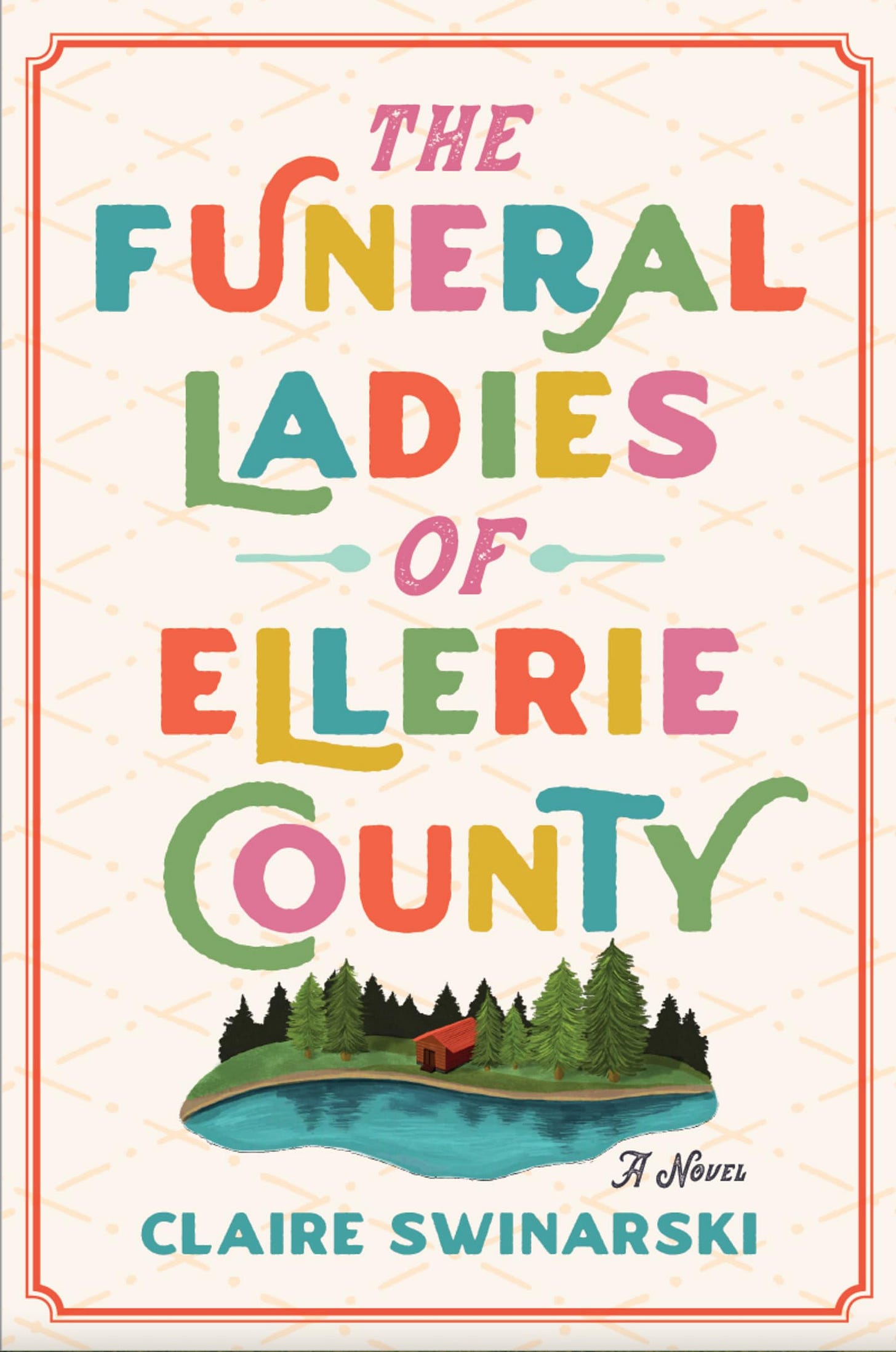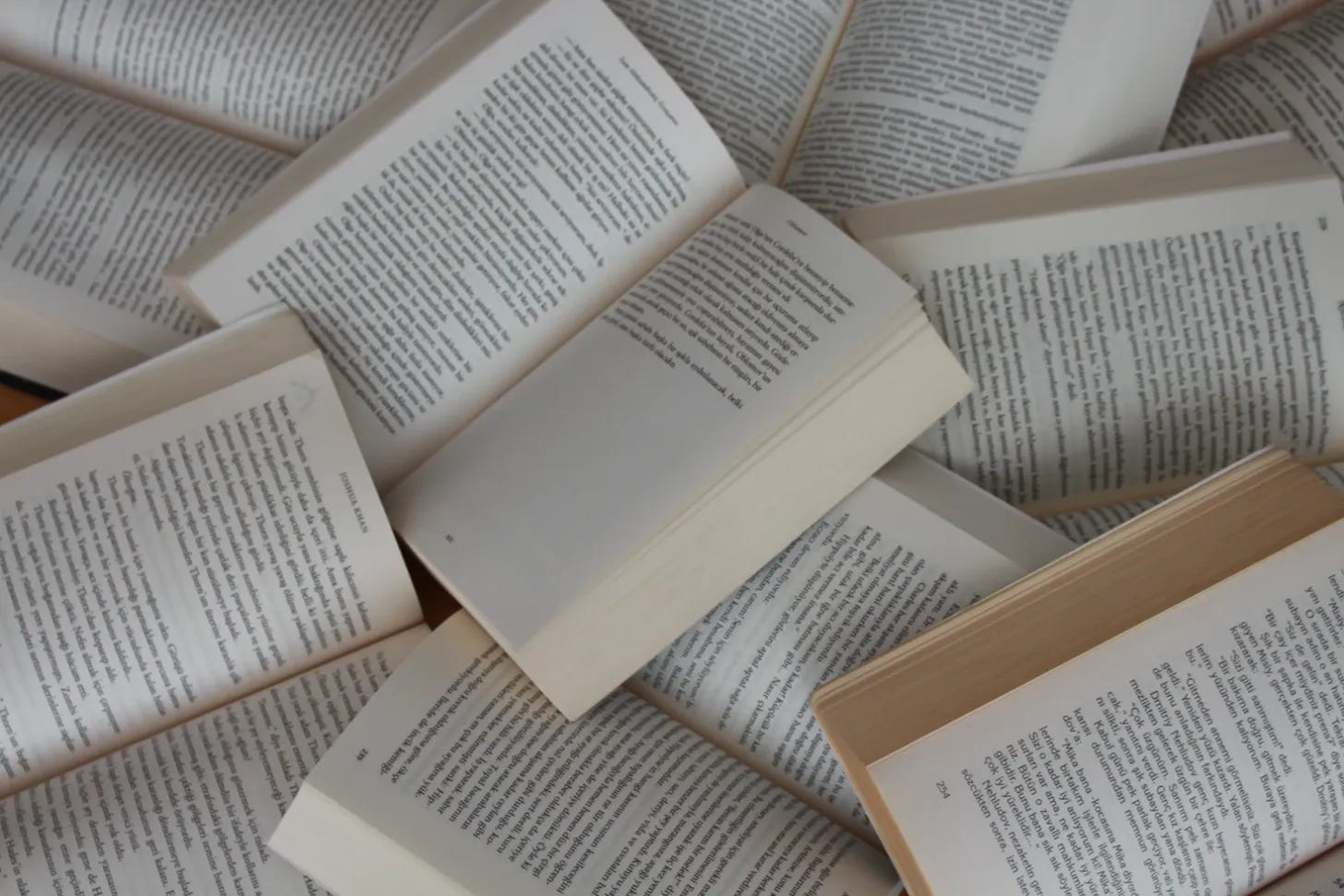When Will I Write Real Books?
...and a Funeral Ladies giveaway! 📚
The other day a woman asked if I only wrote children’s books or if I also wrote “real” books. It was said with absolutely no malice and if you don’t spend tons of time in storytelling land/the planet of publishing, I get why you would word it that way. But it gave me pause because it’s far from the first time such a question has been asked to me, with the understandable-yet-false reasoning that books for adults are real and books for children are not.
I think that much of this comes from a subconscious disrespect we have for kids + their needs, wants, and preferences. Chicken tenders are not “real” food. Disney World is not a “real” vacation. Strega Nona (or, for that matter, Take it From the Top!) is not a “real” book.
But if we stop to think of what a book really is: a portal, a window, a dance, an artistic rendering—then children’s books are every bit as real as adult books. (If you’ve ever doubted the depth or artistic mastery that is Goodnight Moon, please read this piece from
, National Ambassador for Young People’s Literature, and award-winning illustrator .)My 3-year-old and I have spent a lot of time reading Runaway Bunny by Margaret Wise Brown. Why? I have no idea. You can’t really measure the way a book clicks with a person, the same way I can’t really tell you why The Lucky Glasses by Jane Carruth or The Gingerbread Doll by Susan Tews have stuck with me for 33 years. She pours over the illustrations. She says “wait, Mama. Stop. Let’s look.” And then she stares at the wordless pages, where the baby is the boat and the mother is the wind. Something in that photo fascinates her; it stirs her soul and makes her think. Why is that any different from how I feel when I read The Great Gatsby or Jane Eyre or Lord of the Rings? Why is it any less valuable? Because she’s small?
“The modern view seems to me to involve a false conception of growth. They accuse us of arrested development because we have not lost a taste we had in childhood.1 But surely arrested development consists not in refusing to lose old things but in failing to add new things? I now like hock, which I am sure I should not have liked as a child. But I still like lemon-squash. I call this growth or development because I have been enriched: where I formerly had only one pleasure, I now have two. But if I had to lose the taste for lemon-squash before I acquired the taste for hock, that would not be growth but simple change. I now enjoy Tolstoy and Jane Austen and Trollope as well as fairy tales and I call that growth: if I had had to lose the fairy tales in order to acquire the novelists, I would not say that I had grown but only that I had changed. A tree grows because it adds rings: a train doesn't grow by leaving one station behind and puffing on to the next. In reality, the case is stronger and more complicated than this. I think my growth is just as apparent when I now read the fairy tales as when I read the novelists, for I now enjoy the fairy tales better than I did in childhood: being now able to put more in, of course I get more out.” - CS Lewis, “On Three Ways of Writing for Children”
Margaret Wise Brown herself echoed these thoughts: “When a child reaches the age of five he is the sum total of all his younger experiences and discoveries in a brand new world. He carries with him the two-year-old's delight in sheer sound and pounding rhythms and the glamor of the two-year-old's own small self; the three-year-old's humor and love of pattern, and his pleasure in the familiar sights of his own world; the four-year-old's further joining of sound and pattern with rhythm and content, and four-year-old's first playful flights into the humor of the incongruous things that he just knows enough to know are not true; and finally the five-year-old's own keen humor and penetrating observation of the world around him, the careful watching of his own eyes and ears, the keenness of his nose and the sensitiveness of his touch, and the fine and vivid imagery of his own language. Here, perhaps, is the stage of rhyme and reason. It is certainly true that a five-year-old has a keenness and awareness that will probably be displaced or blunted later. For the first time, he has the power of words, to use them and to hear them, to describe the things that his five-year-old senses perceive. He has his feet firmly enough on the ground now to go bouncing off on the most hilarious flights of imagination and to sympathize with and be curious about situations not his own.”
We do not grow out of children’s books. We grow into adult books, but they are rings on a tree. Open up The Runaway Bunny. Linger on the images. Ask what it means to a child, to know there is nowhere they can go where their mother will not reach them. Is that promising? Terrifying? Hopeful? Exhilarating?
You have more rings on your tree, now, if you are reading this. The Runaway Bunny is not enough literature for you to consume. But it’s certainly worthy literature. It’s a “real book”, and none of my books could hold a candle to it when it comes to artistic merit. If only one day.
If we want to raise children into being kind, compassionate, courageous, curious people, we must create art that’s worthy of them. Time and attention and care should be put into creating things that will help them grow into who they’re meant to be while honoring who they currently are. Everyone deserves to laugh, to dream, to dawdle. Even—if not especially—the smallest among us.
In other words: children’s books are real books because children are real people.
I’m often asked at Q & As or on podcasts which is harder, writing for adults or for children. With absolutely no disrespect to the many phenomenal adult novelists I enjoy, I can say that hands down, writing for kids is more difficult. Children are really picky, their attention spans are fleeting, and their curiosity demands to be met with a certain level of answer.
Children’s books remind us of the very purpose of reading: not for BookTok or TBRs or GoodReads goals or Spotify reading wrapped. But for a dive into the imagination and a stirring of our innermost parts. It is an honor to do this work, and to strive towards creating very real books that are worthy of the children whose hands they land in.
“Children’s books are specifically written to be read by a section of society without political or economic power. People who have no money, no vote, no control over capital or labour or the institutions of state; who navigate the world in their knowledge of their vulnerability… And because so many times in life, despite what we tell ourselves, adults are powerless too, we as adults must hasten to children’s books to be reminded of what we have left to us, whenever we need to start out all over again.” - Katherine Rundell, “Why You Should Read Children’s Books, Even Though You Are So Old and Wise”2
I do, in fact, write adult books as well. Tomorrow is the 1-year birthday of The Funeral Ladies of Ellerie County. She can crawl, pull herself up to standing, and say “dada”.3
At this point in my life’s juncture I’ve written quite a few books. I’m at the point where when someone asks me how many I’ve written, I have to stop and purse my lips and count. But Funeral Ladies is the book of my heart. It’s truly the only time I can remember feeling a desperation for publication—I knew that if nobody published this book, I would self-publish it, because the words had shot from my heart to my fingertips and I needed others to experience them or they’d cease to be real. It feels like the peak of my personal writing summit. I hope that isn’t the case; I hope I continue to grow and learn and morph and scribble. I hope I find another one of my books in the airport and at Meijer. I hope another book comes as easily and flows as generously. I hope another book is as easy for me to talk about and another book gets me “you wrote MY LIFE” emails. But I don’t know.
I still daydream about this book, and think about the characters. I think about Cooper and Iris and what they’re up to quite often. I still smile when I see Instagram posts referencing church basements and cherry pie.
And so many of you feel the same way. So many, in fact, that it got a little attention across the pond—the book will be published in Ukranian soon! More details when I’ve got ‘em. But especially now, the fact that I can do work with a country I support so strongly warms my icy little heart.
To celebrate 1 year of Funeral Ladies, I’d like to give away two signed copies. USA only. All you have to do is reply to this email with the best book you’ve read lately. 2 winners randomly chosen on Friday, March 14, 2025.
And if you’re local, on June 24, I’m going to be speaking about Funeral Ladies of Ellerie County at the public library in Hartland, WI. I’d love to see you there!
And lastly, a book (or two) I’ve loved lately for…
Picture book fans: I firmly believe that Tomie dePaola is one of the GOATs, so March is always Jamie O'Rourke and the Big Potato: An Irish Folktale season in these parts.
Middle graders: I’m slowly working my way through Gary D. Schmidt’s work as I prepare to take a writing workshop with him this summer (!!!!!!!!!), and The Wednesday Wars is just as phenomenal as everyone says. It’s about religion, class conflict, friendship…a timeless great.
My kids recommend: Bridget’s (3) love of all things princess has not slowed; her recommendation is A Home for a Princess: A Peek Inside 9 Disney Princess Castles. It’s a giant book with tons of flaps exploring—well, exactly what it sounds like. Tess (6) is also going strong in her love of the Babysitters Club and throws her hat behind Goodbye, Stacey, Goodbye. Benjamin (8) is tearing through another GOAT, Holes by Louis Sachar, but he warns you “it is a little murder-y.”
Adults: I just devoured God of the Woods by Liz Moore. Holy guacamole, this book is good. I don’t usually like thrillers, especially thrillers involving kids, but this book scratched every itch without being that scary. Also, I reread Lager Queen of Minnesota by J. Ryan Stradal and it reaffirmed my belief that it’s the perfect novel.
Thanks for reading along!
It’s like when the actress who played Professor Sprout went viral for her hand-wringing, insisting she was “worried” about adults who still read Harry Potter. Yes, if *all* you read is Harry Potter, that’s no good! But books don’t become less valuable simply because you’ve grown up!
Originally heard of this essay in
, one of my favorite substack newsletters on the beauty + necessity of children’s books!To be clear and call myself out, I hate the “book baby” thing 😂







Happy to say Funeral Ladies has made it into our local library! Looking forward to the read!
I am reading Funeral Ladies and it's great. I have also read all of Claire's 'kids' books and loved them. And I am an adult with a doctorate. They're all fabulous! Thanks again and God Bless!